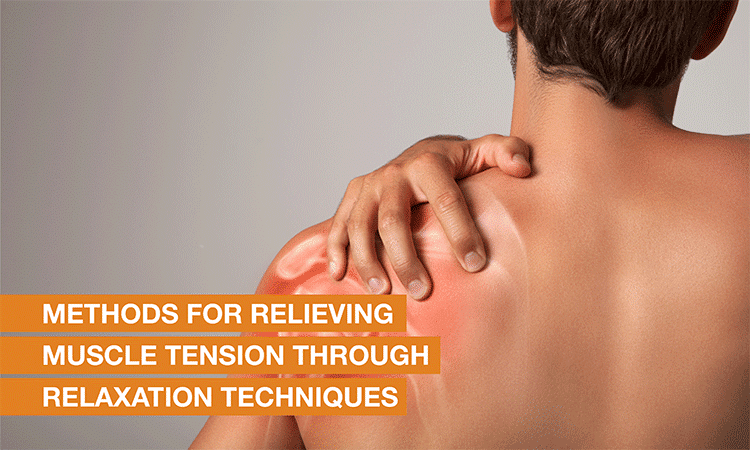Request Appointment
Enter your details and we will be in touch with you shortly;
Or call
8655885566
between 8 am and 8 pm.


Muscle tension is a common occurrence in today’s fast-paced world, which is caused by stress, physical strain, or poor posture. It can lead to discomfort, pain, and reduced flexibility, hindering our overall well-being. There are effective relaxation techniques that can help ease tension in the muscles and restore a sense of calm to both body and mind. Through this blog, we can learn how to ease muscle tension with relaxation techniques.
Muscle tension refers to the involuntary contraction or stiffness of muscles. It can be a result of various factors such as stress, anxiety, physical exertion, and even habitual poor posture. Persistent tension in the muscles can lead to headaches, body aches, reduced range of motion, and even increased stress levels.
Relaxation techniques are essential for releasing muscle tension because they encourage the body and mind to enter a state of calm. When we relax, our muscles can gradually unwind, alleviating tension and promoting better blood circulation. Here are some effective relaxation techniques to consider incorporating into your routine:
Deep breathing exercises are simple yet powerful tools to ease muscle tension. By focusing on your breath, you can tap into the body’s innate relaxation response. Sit or lie down in a quiet space, close your eyes, and take a deep breath through your nose for a count of four. Hold the breath briefly and then exhale slowly through your mouth for a count of six. As you repeat this process, feel the tension melt away with each exhale.
Progressive muscle relaxation is a technique where you systematically tense and then release different muscle groups in your body. This practice not only helps you identify areas of tension but also trains your muscles to unwind. Start with your toes, tense them for a few seconds, and then release. Gradually work your way up through your legs, abdomen, shoulders, and neck, ending with your facial muscles.
Mindfulness meditation is all about being fully present in the moment. By focusing your attention on your breath or a specific sensation, you can calm your mind and release muscle tension. As thoughts arise, acknowledge them without judgment and gently bring your focus back to your breath or chosen focal point. This practice can rewire your brain to respond to stress with greater ease and manage muscle tension more effectively.
Yoga and stretching provide a holistic approach to easing muscle tension. The combination of movement and breath can help stretch and lengthen tight muscles, enhancing flexibility and promoting relaxation. Engaging in gentle yoga poses like child’s pose, cat-cow, and downward dog can be particularly beneficial for relaxing the back, neck, and shoulder muscles.
Guided imagery invites your imagination to take you to a calm and serene mental landscape. Close your eyes, breathe deeply, and envision a calming scene—perhaps a sunlit beach, a serene forest glade, or a mountain retreat. Immerse yourself in the sights, sounds, and sensations of this mental sanctuary.
Easing muscle tension through relaxation techniques isn’t just a luxury; it’s a necessity for maintaining a balanced and healthy life. By integrating these practices into your daily routine, you gift yourself moments of respite from the demands of modern living and experience the benefits of reduced muscle tension, improved flexibility, and a calmer mind. As you learn to release physical tension, you’ll find that your mind also becomes more at ease, paving the way for a more serene and joyful existence. Embrace the power of relaxation techniques and let go of muscle tension, one breath at a time.
For professional guidance, you can connect with the spine experts at QI Spine. Call 086558 85566 to book your first free consultation today.
Visit our nearest clinic for your first consultation